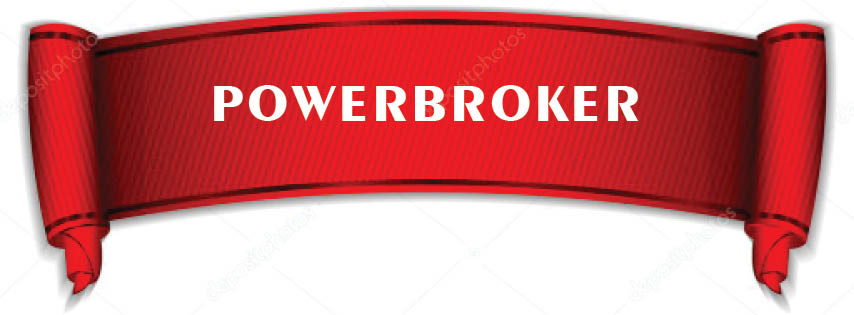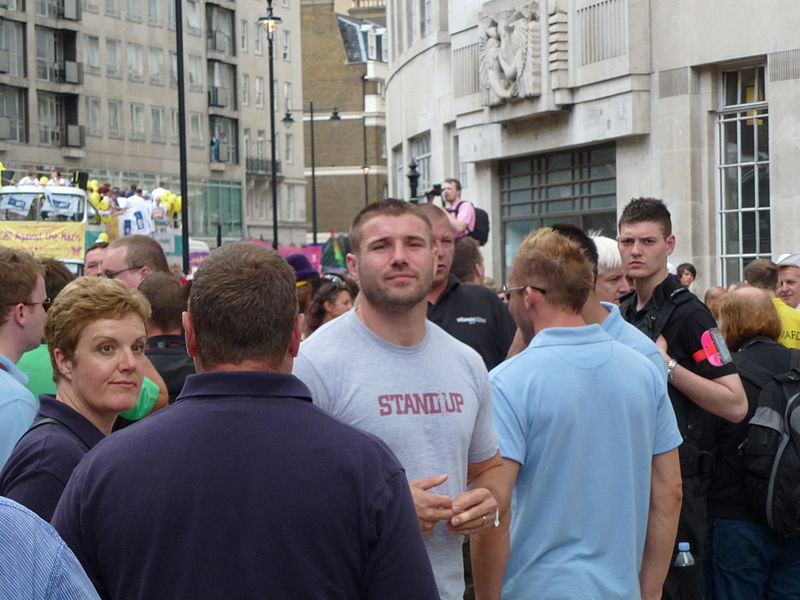
England's Anti-Bully
He won the World Cup and was knighted by the Queen. Contributor MATTHEW FLACKS chats with England National Rugby's Ben Cohen in London about the Standup Foundation.

Ben Cohen via Wikimedia Commons
As I walk into the swanky InterContinental Hotel in the heart of London my actor-self pinches. Shouldn’t I be trapped in a generic office patronized by a hierarchy of paper-shufflers, willing the phone to ring, whisking me away from the mundane treadmill of the comatose resting state? True, the last thing I’d envisaged on a wintry February afternoon in this delicious city was to be sitting in the penthouse of a Park Lane hotel, overlooking our Queen’s back garden, whilst having a natter with a decorated sporting icon. Yet, following an impromptu chat with a certain editor in a prestigious art gallery here I am; the intrepid interviewer about to take a conference call with the former international rugby star turned anti-bullying campaigner and Member of the Most Excellent Order of the British Empire, Ben Cohen.
A British sporting hero, who, after spending his career kicking an oval-shaped ball for a living, has taken up the fight to kick a stigma. Here’s the backstory. Mr Cohen was an integral part of the England National Union Rugby Team that won the 2003 World Cup, and is ranked the 10th highest points scorer in English Rugby Union history. But enough with the stats. I’m primarily interested in his Anti-Bullying organization, the StandUp Foundation. Founded in 2011, its mission is to “raise awareness of the long-term, damaging effects of bullying, and to raise funds to support those doing real-world work to stop it.”
Cohen has always come across as personable and approachable and so he does today. He tells me that he tours schools and colleges to raise awareness about homophobia and transphobia in sport, and is working closely with the government to develop a Home Office Charter. The StandUp Foundation has a presence in the UK and US, and sends out a quarterly magazine to over 300,000 people. Cohen passionately expounds the organization as a “funding body that unlocks revenue” by selling products—very much in the ilk of Livestrong—but for equality. The comparison is as ambitious as it is striking.
So far so worthy. But why? What is his motivation? Although he has very much endeared himself to the gay and transsexual community by making appearances on the covers of their publications, and attending their rallies and public events, he is very quick to assert that he is straight. But who can blame his speedy declination when he was recently—and falsely—outed by one of the UK’s top politicians, John Bercow. Awkward. He also readily affirms that he has not been the victim of bullying himself, nor has he been around a homophobic situation, which again is seemingly paradoxical given the time and passion he dedicates to the issue.
Here is a powerful, muscular, straight and wildly handsome male who cleverly embraces the issue of equality on the one platform that universally drives our moral cause and compass—family. Cohen’s father was killed in a fracas outside his nightclub when he intervened to defend a man who was being attacked in 2000. Following this horrific event, Cohen explains that it was a very difficult time for he and his family, and he found himself intervening with those who were being picked upon and, much like his father, began advocating in their behalf. He considered his extensive Facebook Fanpage, consisting mainly of gay men, and empathized with their struggle, plight and stories. Together with the hope of a better world for his children to live in, the inspiration for the foundation was born.
Although the primary mission of the StandUp Foundation is presently focused on homophobia and transphobia in sport, Cohen tells me that the bigger issue is equality. He acknowledges that most sports reduce to bullying the opposition in some way through the very nature of competition. But that he and the foundation are striving to “raise awareness at the grass-roots level” by insisting that “anyone can—and should—play sport.” In essence, children should not be disqualified because they are “perceived to be different.” As I approach the subject of openly gay sports players, or the perceived lack thereof, Cohen suggests that there may be “a witch-hunt in some sports for a player to come out.” He questions whether people will simply be content with a player from, say, the lower leagues of a sport to come out, or whether the press will not rest until they’ve claimed the blood of a top league gay professional athlete at the height of their game?
I find this intriguing. It is an extremely prescient conversation in the UK at the moment, most particularly in our national sport of football. It is widely acknowledged that sportsmen who are currently at the top of their game are indeed gay but not out to anyone within the sport or public. Why shouldn’t there be a certain expectation? In 2013, people should feel comfortable to express their sexuality despite or even because of their success. Cohen admonishes the older generation—managers and agents in particular—to overcome their own prejudices. Indeed, the mood is changing among western societies who are taking the initiative and responsibility—within and without a sports stadium—for a quantitative shift in values. In this, Cohen seems to be doing his bit both on and off the field.
Cohen points out that “the modern sportsman needs to be a role model” and show more than just athletic prowess. “It is no longer feasible to simply do the job on the pitch and relinquish responsibility once the game is over.” Does this suggest that players should not have a private life, or that they should be at the mercy of media and public alike, anytime, anywhere? Do they have an obligation to come out? I don’t think so. However, with so few sportsmen and women reluctant to admit publicly that they’re gay, does this not dissuade other potential future sports stars to do the same? Would an openly gay sportsman not be an iconic inspiration to hundreds even thousands of young people all over the world? This is, of course, a more specific argument within the larger arena of equality, yet, as Cohen states, an intrinsically private matter.
The StandUp Foundation is “not attempting to reinvent the wheel,” as Cohen puts it, but to “break down stereotypes and to educate on issues surrounding homophobic and transphobic bullying.” Noting how the successful London Olympics of 2012 demonstrated the extent of diversity in sport, he advocates for the “return to true sportsmanship’ and the “redefinition of the champion” by never letting activism ahead of altruism and character. To each cause and every fight I see that champions are not merely winners, but, as our Knight and advocate Mr. Ben Cohen suggests, hero’s oft hard at work in the business of courage. Bravo, Sir, Bravo.
Archives








